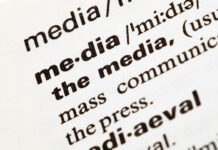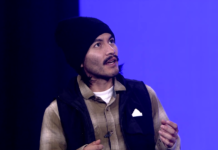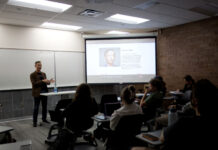
National Public Radio’s (NPR) Brooke Gladstone visited Salt Lake Community College on Monday, Oct. 27 to talk about how the media influences the information that we interpret as real news.
According to Gladstone, the rules of ethics have been twisted to where the public is comfortable with social media as a source of information. The public also doesn’t take responsibility for making sure that they are informed and that bad information is not passed on. Gladstone wrote about the unified theory on the media in comic book form called “The Influencing Chain.” The book talks about the cognition of how we process information.
“The sightful problem of the modern age of information is that we accept what is being given to us through the media,” says Gladstone.
Brook mentions every time someone re-tweets something and or takes a photo, they are affecting what everybody thinks. Therefore, everyone has to apply the same rules of ethics in not lying. They also need to think about divulging all information in a truthful manner.
“You are not playing a game of a thousand words with friends,” says Gladstone. “You don’t lie. You don’t re-tweet disinformation to friends and you don’t become a part of some slain session as well.”
Media is a shared digital space that you want to keep clean.
Gladstone also mentions that, you as an individual do not have to participate in making that space more polluted. This is a shared space that you don’t want to fill with lies and static. The lies and static makes being an informed part of the world more difficult. Consumers may get information from people that they don’t like but they will still read the article for the sake of receiving the information.
“It’s really up to the individual to choose what kind of information to take in,” says Gladstone. “Whether it is good or bad people have the freedom to filter between the two.”
Inherited biases also influence the type of filters we use to disseminate information to ourselves. Gladstone mentioned a Harvard test called a FMRI that maps your interest that is affected by certain stimuli. This test helps you determine what type of information you are subject to. This test shows you how much you are in tune with information that you want to believe in.
“Everything is neglected,” says Gladstone. “If they are not picking up the paper that means it is not relevant to them or they don’t need or want that type of information.”
Technologic devices and the internet makes information getting more obtainable than the printed version. It is easy to access a cellular phone, tablet or any mobile wireless device to read the news whenever a person needs it.
“All the information that you want is out there,” says Gladstone.







